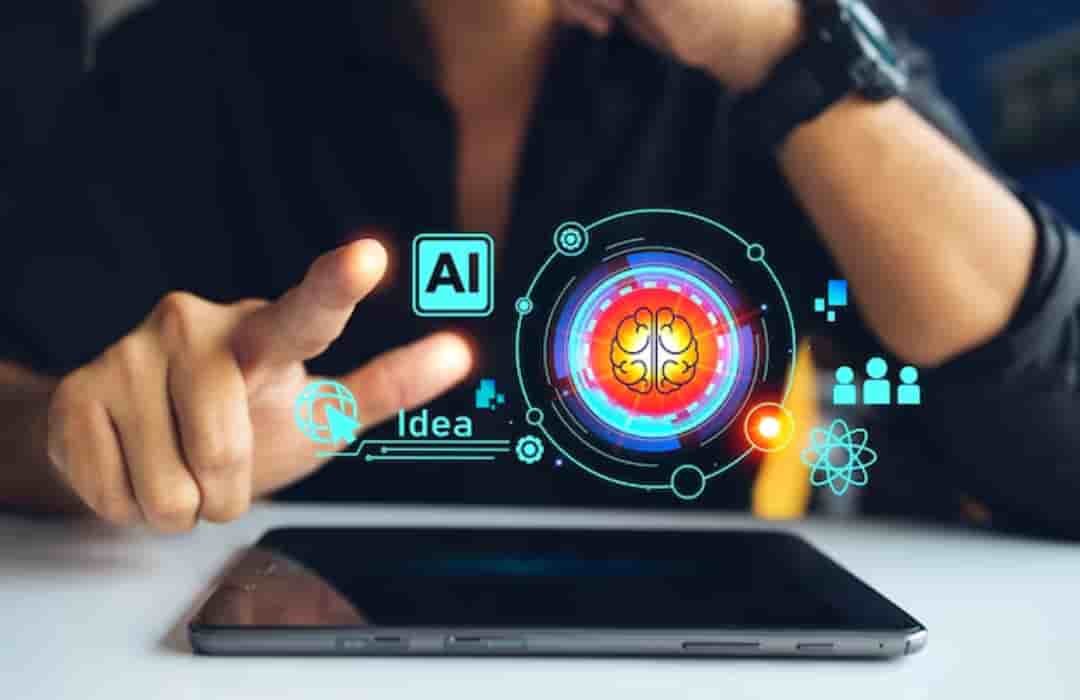
Artificial Intelligence (AI) has already transformed the landscape of digital marketing, and in 2025, its influence is set to become even more profound. From personalized content and customer insights to automating processes and enhancing decision-making, AI is revolutionizing how brands engage with their audiences. The ability to harness AI effectively can give businesses a competitive edge, allowing them to scale quickly, improve efficiency, and offer better customer experiences.
But what does the future hold for AI in digital marketing? In this article, we’ll explore the key trends shaping the future of AI in digital marketing in 2025, and how you can use these trends to stay ahead of the curve.

1. AI-Powered Personalization: The Era of Hyper-Personalization
Personalization has always been an important element in marketing, but AI is taking it to new heights. In 2025, we can expect hyper-personalized experiences, where every customer interaction is tailored based on their behavior, preferences, and previous interactions with the brand.
a) How AI Drives Personalization
AI can analyze vast amounts of data to segment audiences more accurately and predict customer behavior. With AI, brands can personalize everything from website content and product recommendations to emails and ads.
- How to Use This: Implement AI-powered recommendation engines on your website or in your email campaigns to suggest products, content, or services based on previous interactions and browsing patterns. AI can also personalize the timing and frequency of messages to optimize engagement.
- Why It Works: Hyper-personalized experiences increase customer satisfaction, boost engagement, and improve conversion rates. Customers are more likely to engage with content that speaks directly to their interests and needs.
b) The Role of Predictive Analytics
AI can also predict what a customer might want or need before they even know it. Using predictive analytics, AI analyzes customer data to anticipate future behavior, helping businesses provide the right offers at the right time.
- How to Use This: Leverage predictive analytics to target customers with tailored offers or products they are likely to purchase in the near future, based on historical data and behavior patterns.
- Why It Works: Predictive analytics not only boosts sales but also improves customer loyalty by delivering what they need before they even ask for it.
2. AI-Driven Content Creation: Automating Creativity
AI has become a powerful tool for content creation. From generating blog posts and social media updates to crafting video scripts and even design elements, AI is enabling marketers to produce high-quality content faster and more efficiently.
a) AI for Copywriting and Content Generation
AI tools like GPT-4 are already capable of generating high-quality copy in seconds. Marketers can use these tools to automate repetitive content creation tasks and generate personalized content at scale.
- How to Use This: Use AI tools for writing social media captions, product descriptions, blog posts, or even email copy. AI can analyze your brand’s voice and tone to create content that aligns with your overall strategy.
- Why It Works: AI content creation reduces the time spent on generating copy, increases productivity, and ensures that content is consistent across all channels.
b) AI in Video and Visual Content Creation
AI is also making waves in visual content creation. From automatically editing videos to creating personalized graphics, AI tools can help brands produce engaging visuals that resonate with their audience.
- How to Use This: Use AI tools to automatically generate visual content for your social media posts or marketing materials. AI can analyze trending topics, keywords, and engagement data to produce visuals that align with audience interests.
- Why It Works: Visual content increases engagement, and AI can optimize the creation process to ensure that the right content is produced for the right audience in less time.
3. AI-Enhanced Customer Support: Chatbots and Virtual Assistants
AI-powered chatbots and virtual assistants are already transforming customer service, providing quick and efficient support across various platforms. By 2025, we expect AI chatbots to become even more sophisticated, offering more personalized and human-like interactions.
a) AI-Powered Chatbots
AI chatbots can instantly answer customer queries, provide personalized recommendations, and even resolve complex issues while learning from past interactions to improve their performance over time.
- How to Use This: Implement AI chatbots on your website, social media pages, or in your mobile app to provide 24/7 customer service. These bots can handle common questions, provide product information, and guide users through the purchasing process.
- Why It Works: AI chatbots reduce the load on customer service teams, increase response times, and provide consistent, high-quality support, enhancing the overall customer experience.
b) Virtual Shopping Assistants
In 2025, AI virtual assistants will be integral to e-commerce. These assistants will provide personalized shopping experiences, helping customers find the right products based on their preferences and previous behaviours.
- How to Use This: Integrate AI virtual assistants into your e-commerce platform to guide customers through the shopping journey. These assistants can offer real-time suggestions, assist with size and style choices, and even help with checkout.
- Why It Works: Personalized shopping experiences increase conversions by making the purchasing process faster and more enjoyable for customers.
4. AI in Social Media Marketing: Smarter Campaigns
AI is revolutionizing social media marketing by allowing brands to analyze large amounts of data, identify trends, and optimize campaigns in real time. In 2025, AI will enable even smarter social media strategies, making it easier for brands to connect with their audience.
a) AI for Social Media Listening and Analytics
AI tools can help brands monitor social media conversations, track brand sentiment, and identify relevant trends to their audience. This real-time analysis allows marketers to create more responsive campaigns.
- How to Use This: Use AI-driven social listening tools to track conversations around your brand, industry, or competitors. AI can analyze this data to identify trends, customer pain points, and opportunities for engagement.
- Why It Works: AI-powered social listening ensures that your campaigns are always aligned with what your audience is talking about and care about, helping you create more relevant content.
b) AI-Powered Content Distribution
AI can optimize when, where, and how content is distributed on social media platforms. By analyzing engagement data, AI can determine the best times to post and which formats will perform best.
- How to Use This: Use AI tools to schedule and distribute content at the most effective times based on past engagement patterns. AI can also help optimize the content format for each platform (videos, images, or text).
- Why It Works: AI allows brands to maximize the impact of their content by ensuring it reaches the right audience at the right time, increasing engagement and ROI.
5. AI for Data-Driven Marketing Decisions
AI’s ability to analyze large datasets and extract actionable insights is transforming how marketing decisions are made. By 2025, AI will continue to enhance data-driven marketing strategies, providing deeper insights into customer behaviour and campaign performance.
a) AI-Driven Marketing Automation
AI-powered marketing automation tools can optimize your campaigns by automating tasks such as lead scoring, email marketing, and customer segmentation. This enables marketers to focus on strategic decisions while AI handles the repetitive tasks.
- How to Use This: Implement AI-powered automation to personalize email campaigns, create dynamic content, and segment your audience more accurately. AI can help ensure your messaging is tailored to each customer at each stage of their journey.
- Why It Works: Automation improves efficiency, consistency, and relevance, leading to better customer experiences and higher conversion rates.
6. Ethical AI and Data Privacy
As AI becomes more integrated into digital marketing, ethical considerations and data privacy will become even more critical. In 2025, businesses will need to navigate the challenges of using AI responsibly while ensuring compliance with data protection regulations.
- How to Use This: Ensure that your AI tools comply with data privacy laws such as GDPR. Be transparent with your audience about how you collect and use their data, and provide clear opt-in options for personalized experiences.
- Why It Works: Ethical AI practices build trust with your audience, ensuring they feel safe and valued while interacting with your brand.
Conclusion: AI is the Future of Digital Marketing in 2025
AI is no longer a futuristic concept; it’s already reshaping digital marketing, and its role will only continue to expand in 2025. By embracing AI-driven personalization, automation, analytics, and customer support, businesses can enhance their marketing efforts, improve efficiency, and deliver better experiences for their customers.
To stay competitive in 2025, it’s essential to leverage AI to make smarter, data-driven decisions, optimize content and campaigns, and offer highly personalized experiences that resonate with your audience.

